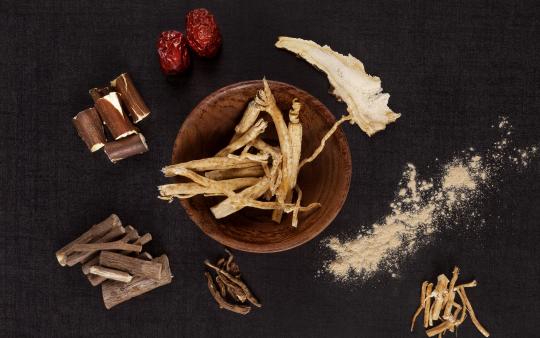As parents, we encounter a ton of stress on a daily basis. Stress is not universally bad, but when it starts to impact our daily activities, it’s important to address the situation. Unfortunately, stress is not for adults only: in my practice I’m seeing frequent symptoms of stress in my pediatric patients as well. Whether young or old, elevations in stress, or prolonged periods of stress, can affect digestion, sleep, skin, mood, development, energy, weight management, menstrual cycles, and so much more. Having tools to meet those needs is paramount.
Fall can mean a time of transition, cooler temperatures, and added time spent indoors. With this change in season and kids resuming school, it can also introduce a period of increased stress, anxiety, and challenges to both the immune and nervous systems. As summer wanes, I advise my patients to start protecting themselves from elevations in stress, colds, flus, fatigue, and more. I encourage them to adapt. And what’s one of the best ways to do that? Adaptogens!
What are adaptogens good for?
The Encyclopedia of Herbal Medicine defines adaptogens as herbs that have an ability to help people to adapt, either by supporting the nervous system and easing nervous and emotional tension, or by working directly with the body’s own physiological processes to maintain health. Adaptogenic herbs promote an overall state of well-being. They help to modulate the body’s reactions to stress; restore health, vitality, immunity, resilience, and stamina; and can be called upon when a relaxing effect is required. Many of them are considered gentle medicines and are among my favorite, and most prescribed, group of herbs.
Adaptogenic Herbs in Your Diet
Adaptogens are everywhere. In fact, you may have tried one or more of these herbs without knowing just how fantastic they were! Often available in teas, tinctures, and capsules, these ingredients are trending up a storm! But don’t relegate these powerhouses to just tea time: Include adaptogens in your mealtime routine!
From a naturopathic standpoint, nutrition is one of the basics of maintaining good health. Optimizing the diet comes long before supplements and remedies of any kind are prescribed. This means that any food that also has medicinal properties is a big win in our books! Not to mention, medicines in the form of food are typically much easier to get into our smallest patients.
Astragalus Root
Immune enhancing; tonic (especially for the cardiac system).
Try this: Fry slices of root with a small amount of honey and serve as a side or make an astragalus infusion for this Autumnal Adaptogen Soup.
Licorice Root
Anti-inflammatory; expectorant; demulcent; mucoprotective.
Try this: Enjoy steeped in a sweet and spicy cup of Licorice Chai Tea. Feel free to add a little honey!
Holy Basil
Antimicrobial; antioxidant; anti-inflammatory; analgesic; and much more!
Try this: Mix in a few leaves along with regular basil in your pesto (or substitute completely!).
Ginseng
Korean variety – immune modulating; hypoglycemic; tonic (especially for the cardiac system and for males); cancer prevention.
Siberian variety – antioxidant; tonic; immune modulating; hypoglycemic.
Try this: Toss some into soups and broths.
Schisandra
Liver protectant; antioxidant; tonic.
Try this: Dry the berries and add them to trail mix, in your next batch of muffins, or enjoy them straight-up!
Maca
Hormone balancer (especially for men); immunostimulant; cognition enhancing.
Try this: Chop the root, cook it, and add it to porridge. Or grind into flour (or buy in powder form) for baking. Try these Maca Maple Oat Cookies for a delicious treat!
Terminology of adaptogenic benefits
Analgesic: relieves pain
Demulcent: a soothing effect on mucous membranes.
Expectorant: improves the clearing of excess mucus.
Hypoglycemic: reduces the level of glucose in the blood.
Immune modulating: modulates and balances the activity of the immune system.
Mucoprotective: protects the mucous membranes, especially the gastric lining.
Tonic: improves the tone, vigour, and function of the whole body. Boosts energy.
While adaptogens are grouped together based on a shared primary action, they each also have a unique secondary (and tertiary) action. Thus, some herbs are more stimulating, some more relaxing, some more effective in boosting immune function, and others aid in recovery. Since adaptogens are not all created equally, different situations often call for different variations, and oftentimes, a combination of adaptogens. Knowing which herbs to take, how much, and when, is a skill that requires a trained professional.
In the meantime, you can start getting to know, and trying out, this amazing group of herbs. Aviva Romm, MD and alternative medicine guru, calls adaptogens the herbal ‘pause button’ for restoring your nervous system and reversing damage. How great does that sound? I believe there is a place for these herbs in all of our lives. So this fall, try eating some adaptogenic foods, and make your way to a more resilient and adaptogenic version of you! Enjoy!






